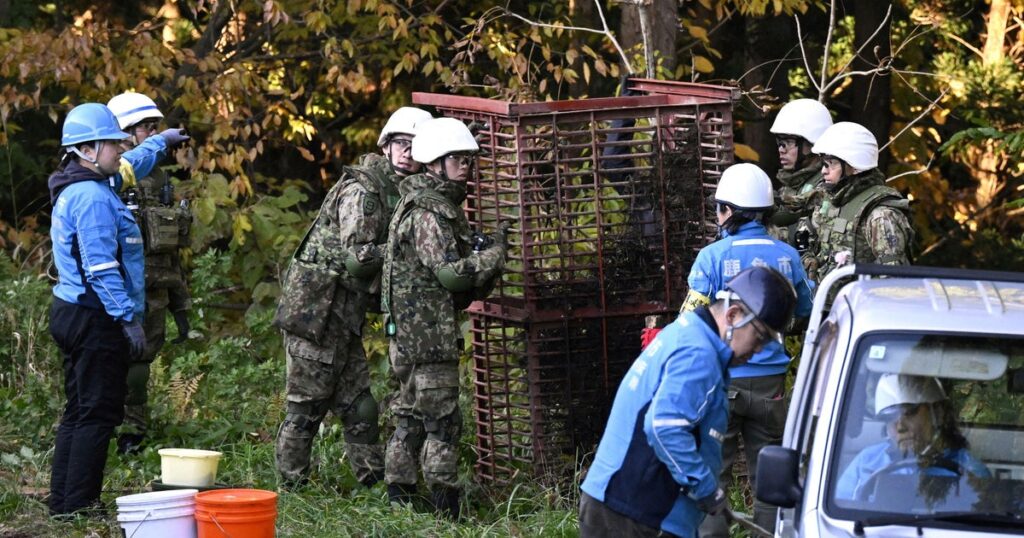Tokyo, Japan’s Defense Ministry deployed troops on Wednesday to the northern prefecture of Akita to help contain a surge of bear attacks that have alarmed residents in the mountainous region. Bears have been appearing near schools, train stations, supermarkets, and even a hot springs resort, with attacks reported almost daily across Japan, primarily in the northern areas.
Since April, more than 100 people have been injured and at least 12 killed in bear attacks across the country, according to Environment Ministry statistics as of the end of October. This represents the highest number of fatalities caused by bears in one fiscal year since 2006, when the ministry began compiling such data.
“Every day, bears intrude into residential areas in the region and their impact is expanding,” Deputy Chief Cabinet Secretary Fumitoshi Sato told reporters. “Responses to the bear problem are an urgent matter.”
The Defense Ministry and Akita prefecture signed an agreement on Wednesday afternoon that permits soldiers to set up box traps baited with food, transport local hunters, and assist with the disposal of dead bears. Officials emphasized that soldiers will not use firearms to cull the animals.
Akita Governor Kenta Suzuki expressed that local authorities are becoming “desperate” due to manpower shortages amid daily bear attack reports. Defense Minister Shinjiro Koizumi stated on Tuesday that the mission’s goal is to help secure people’s daily lives. However, he noted that the Self-Defense Forces’ primary responsibility remains national defense, and their support for the bear situation cannot be unlimited. The ministry has not yet received other requests for troop assistance related to bears.
In Akita prefecture, home to about 880,000 residents, bears have attacked more than 50 people since May, resulting in at least four deaths, according to local government figures. Experts estimate that 70% of the attacks have occurred in residential areas.
A recent tragic case involved an elderly woman found dead in the forest over the weekend in Yuzawa City, apparently from a bear attack while mushroom-hunting. In late October, another elderly woman was killed by a bear while working on a farm in Akita City. Additionally, a newspaper delivery man was injured in an attack there on Tuesday.
Experts attribute the escalating bear problem to Japan’s aging and declining rural population. Abandoned neighborhoods and farmlands with persimmon or chestnut trees often attract bears into residential zones. Once bears find accessible food sources, they tend to return repeatedly.
Local hunters, many of whom are also aging, are reportedly not as experienced with bear hunting. Specialists suggest that police and other authorities receive training as “government hunters” to contribute to culling efforts.
Last week, the government established a task force tasked with devising an official bear response plan by mid-November. Among the measures under consideration are bear population surveys, the use of communication devices to issue bear warnings, and revisions to hunting regulations. Officials also emphasize the importance of training experts in both hunting and bear ecology.
The Environment Ministry noted that a lack of preventive measures in depopulated and aging northern regions has contributed to increased populations of brown bears and Asiatic black bears, intensifying the problem nationwide.
https://www.cbsnews.com/news/japan-bear-attacks-troops-deployed-akita/

